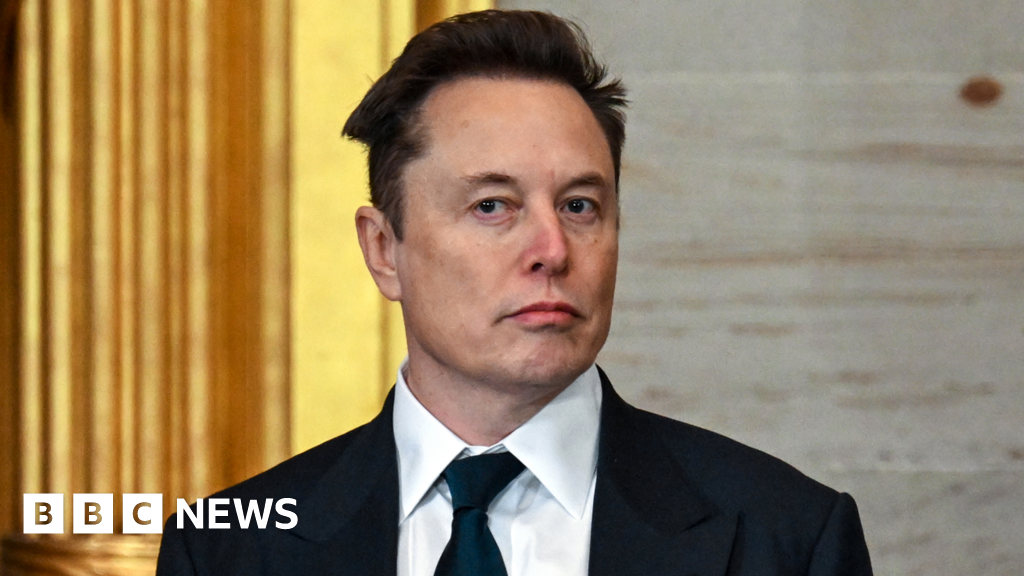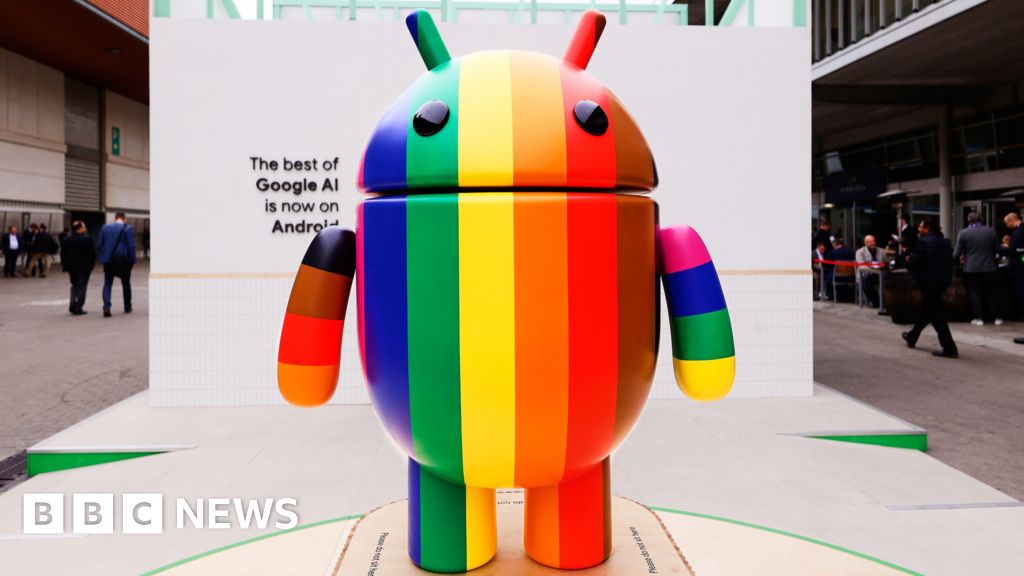For many years, the feud between Kendrick Lamar and Drake lay dormant. They exchanged subtle jabs at first, then tapered off to quiet competition, as tension between any high-performing colleagues might.
When Lamar was in one of the more vulnerable stages of his career in 2023 — in the wake of a critically acclaimed and Grammy-winning album release in 2022 that didn’t garner him any No. 1 songs — Drake released a song dissing him. It took months, but when Lamar responded in 2024, he obliterated Drake in every possible avenue.
Drake’s provocation shook Lamar out of stasis, reignited the writing prowess that made Lamar the only rapper who has ever won a Pulitzer Prize and sparked one of the most intense back-and-forth feuds between rappers in recent history.
Lamar has won the lyrical showdown in every possible venue — first on the charts and then at the Grammys. And he really won at the Grammys, emerging as the winningest artist of the evening. Of seven nominations, he won five, defeating himself in two categories and taking home every possible trophy that his scorching diss track “Not Like Us” could have won.
Now he’s taking that victory lap and his culture-defining diss track to the biggest possible venue: the Super Bowl halftime show. He’ll likely have thousands of fans at the Caesars Superdome in New Orleans and even more at home singing along.
There is perhaps no greater victory for a prolific hater than uniting the country to belt out “trying to strike a chord and it’s probably A minor,” the iconic words to his five-time Grammy-winning song, at the biggest TV event of the year.
Wait, what happened between Lamar and Drake?
Drake onstage in 2013. That was the year his relationship with Kendrick Lamar turned sour. (Gilbert Carrasquillo/Getty Images)
Early in their careers, Drake and Lamar were collaborators. Lamar was featured on Drake’s 2011 song “Buried Alive Interlude,” then Drake was featured on Lamar’s “Poetic Justice” in 2012. They both appeared on A$AP Rocky’s “F***in’ Problems” in 2013.
Things changed that year. Lamar was featured on Big Sean’s song “Control,” in which he called out many of his rap peers: J. Cole, Meek Mill, Drake, Big K.R.I.T., Wale, Pusha T, A$AP Rocky, Tyler, the Creator, Mac Miller, Jay Electronica and Big Sean himself. “I got love for you all, but I’m trying to murder you,” he says in the song.
The two subtly fired shots back and forth for the next few years, with Lamar dealing most of the blows, then things fizzled out until October 2023. That’s when Drake released the song “First Person Shooter” featuring J. Cole. In it, J. Cole says, “Love when they argue the hardest MC / Is it K-Dot? Is it Aubrey? Or me? / We the big three like we started a league / but right now, I feel like Muhammad Ali.”
He also says, “Me and Drizzy, this shit like the Super Bowl” — but he couldn’t have possibly known what he was foreshadowing.
Drake is not a stranger to rap feuds. His 2015 Meek Mill diss track, “Back to Back,” was more popular than anything Mill put out, winning him that war. It was also nominated for a Grammy, which he ironically lost to Lamar. Drake’s feud with Pusha T ended differently, as Pusha revealed to the world in “The Story of Adidon" that Drake had a secret son, shutting down the feud. Drake has also been trading jabs with Kanye West for years. Lamar’s unparalleled lyrical prowess made this a different kind of battle though.
Lamar’s 2022 album, Mr. Morale & the Big Steppers, won the Best Rap Album Grammy and hit No. 1 on the Billboard 200. But because it was a conceptual album framed as a therapy session, it didn’t deliver the bangers or cultural conversation that Lamar usually does — a sharp contrast after his last album, DAMN., became such a sensation in 2017. He was a part of the 2022 Super Bowl halftime show alongside several other artists, but with his cultural significance at a lull, it might have seemed to Drake as if Lamar was more vulnerable than ever to a direct response to their mid-2010s beef.
On March 22, 2024, Lamar responded to the “First Person Shooter” diss. He appeared on Future & Metro Boomin’s “Like That,” in which he attacked both Cole and Drake. He says: “F*** sneak dissin’, first-person shooter / I hope they came with three switches … motherf*** the big three … it’s just big me.”
Three days later, during his tour stop in Sunrise, Fla., Drake seemingly addressed the budding feud, saying, “I got my head up high.”
On April 19, the diss track wars officially began. Drake released “Push Ups,” in which he mocked Lamar’s small stature, saying, “How you big steppin’ with a size 7 men’s on” and “pipsqueak pipe down,” among many other things. He also seemingly called out Rick Ross, the Weeknd, Metro Boomin and Future.
On April 24, Drake added more fuel to the fire by releasing “Taylor Made Freestyle” on Instagram, referencing Lamar’s friendship with Taylor Swift (and perhaps contributing to Swift’s enthusiastic celebration of Lamar’s Grammy win on Sunday). He used AI to make his vocals sound like Tupac and Snoop Dogg, which led to Tupac’s estate issuing a cease-and-desist. Drake took the song down.
When Lamar responded on April 30, it was with a 6-minute bloodthirsty track called “Euphoria,” in which he questioned Drake’s use of the N-word, his fashion sense and his talent. “The famous actor we once knew is lookin' paranoid and now spiralin' / You're movin' just like a degenerate, every antic is feelin' distasteful,” he says.
The onslaught continued when Lamar released “6:16 in LA.” on May 3, in which he alleged that a mole within Drake’s OVO company was leaking information to him. Drake responded hours later with “Family Matters,” in which he accused Lamar of cheating on his fiancée.
On May 4, Lamar responded with “Meet the Grahams,” in which he called Drake a “deadbeat” and accused him of having a secret daughter. He also alleged that Drake has lied about his family, cosmetic surgery and using ghostwriters. “F*** a rap battle, this a lifelong battle with yourself,” Lamar says.
Less than 24 hours later, Lamar dealt Drake one final blow with the defining song of the feud: “Not Like Us.” He accused Drake and his OVO collaborators of pedophilia in the now-famous line “Certified Lover Boy? Certified pedophiles.”
Drake responded on May 5 with “The Heart Pt. 6,” saying he baited Lamar with false information about having a secret daughter and ignited rumors about Lamar’s fiancée.
Lamar didn’t release any more songs. The damage had been done. “Not Like Us” debuted at No. 1 on the Billboard Hot 100 — his first chart-topping hit since 2017. “Euphoria” then rose to No. 3. Drake successfully, though inadvertently, lured Lamar back into cultural dominance.
Lamar cemented his victory on June 19 with his “The Pop Out: Ken & Friends” concert in Inglewood, Calif., where he performed “Like That” and “Euphoria.” He closed out the show performing “Not Like Us” five times in a row, bringing out members of opposing gangs and influential L.A. figures to spread a message of unity. They were united in their glee surrounding a track dissing Drake.
The victory lap continued on July 4, when Lamar released the music video for “Not Like Us,” which included subtle references to Drake, including an owl in a cage.
On Feb. 2, Kendrick won five Grammys for “Not Like Us”: Record of the Year, Song of the Year, Best Rap Song, Best Rap Performance and Best Music Video. The song he was featured on that served as his inciting blow for in the feud, “Like That,” was also nominated for Best Rap Song and Best Rap Performance. He wore a Canadian tuxedo, which fans interpreted as another subtle Drake diss.
Lamar’s latest album, GNX, was released too late in 2024 to qualify for the 2025 Grammys. He dissed Drake in at least three of those songs.
How has Drake responded?
While Lamar heads to the Super Bowl with five fresh Grammys, Drake is taking his half of the feud to court.
On Jan. 15, Drake filed a federal lawsuit against Universal Music Group, the record company he and Lamar are both signed to, alleging defamation and harassment. He claimed Universal prioritized “corporate greed over the safety and well-being of its artists” by releasing “Not Like Us,” which conveys “the specific, unmistakable, and false factual allegation that Drake is a criminal pedophile, and to suggest that the public should resort to vigilante justice in response.” Notably, he’s not suing Lamar himself.
In a statement to Yahoo Entertainment, UMG called the allegations "untrue" and vowed to "vigorously defend this litigation.”
On Jan. 14, Drake withdrew one of his two pre-action complaints against UMG and Spotify that alleged the companies used unfair practices to amplify “Not Like Us.”
Drake did not attend the Grammys. On Feb 4, two days after the ceremony, he kicked off his "Anita Max Win Tour" in Perth, Australia, wearing a hoodie covered in bullet holes with smoke pouring out of them.
"I love you dearly," he said onstage. "My name is Drake. I started doing music in 2008. I come all the way from Toronto, Canada. The year is now 2025, and no matter what, Drizzy Drake is very much alive."
We’ll see what Drake does next, but it’s not likely that he — or any other artist, for that matter — could top the month Lamar has had. Lamar has Drake to thank for that.

 German (DE)
German (DE)  English (US)
English (US)  Spanish (ES)
Spanish (ES)  French (FR)
French (FR)  Hindi (IN)
Hindi (IN)  Italian (IT)
Italian (IT)  Russian (RU)
Russian (RU) .png) 12 hours ago
8
12 hours ago
8


Comments
Get the most out of News by signing in
Sign In Register